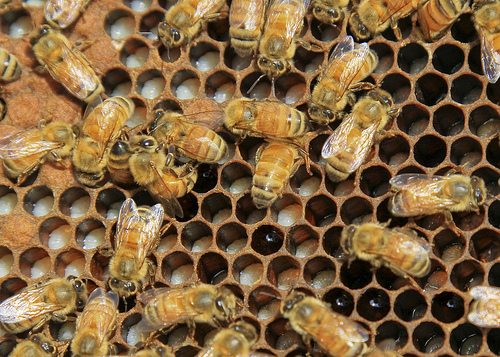

Environment
Protect more bee species to prevent future shocks, says scientists
Bee conservation efforts should focus on more bee species, not just those currently providing value by pollinating crops, in order to prevent future changes affecting the security of food supplies, scientists have said.
Researchers from the University of Reading argue that while most crops are pollinated by only a small number of bee varieties, conservation efforts should be aimed at a wider number, even those that currently contribute little to crop pollination. They explain that this would maintain biodiversity and help prevent potential food shortages in the future.
A study found that pollinating work of wild bees was worth more than $3,000 (£1,900) per hectare. However, much of this work is done by just 2% of bee species. This work is vital for the production of crops, such as oilseed rape, beans, apples and strawberries and would cost more than £1 billion a year to replace in the UK alone.
Despite only a small number of bees currently contributing to pollinating the UK’s crops, as the climate and environment changes other species may become vital, making it imperative that we also focus conservation efforts on these species.
Professor Simon Potts, director of the Centre for Agri-Environmental Research at the university, said, “The few bee species that currently pollinate our crops are unlikely to be the same type we will need in the future.
“It is critical to protect a wide range of bees and other insects now so that, as Britain’s climate, environment and crop varieties change, we can call on the pollinating species which are best suited to the task. We can’t just rely on our current starting line-up of pollinators.”
Photo: James Patrick Casey via Flickr
We’re live on Crowdcube. To own a share in our tomorrow, click here.
#investaware
Further reading:
Pollen collected by European bees contaminated with pesticides
Great British Bee Count: allotments better than parks for bees
Banned pesticide interferes with bees’ ability to gather food
Study reveals ‘widespread risk’ of disease to wild bees
Petition urges UK government to keep the ban on bee-killing pesticides































